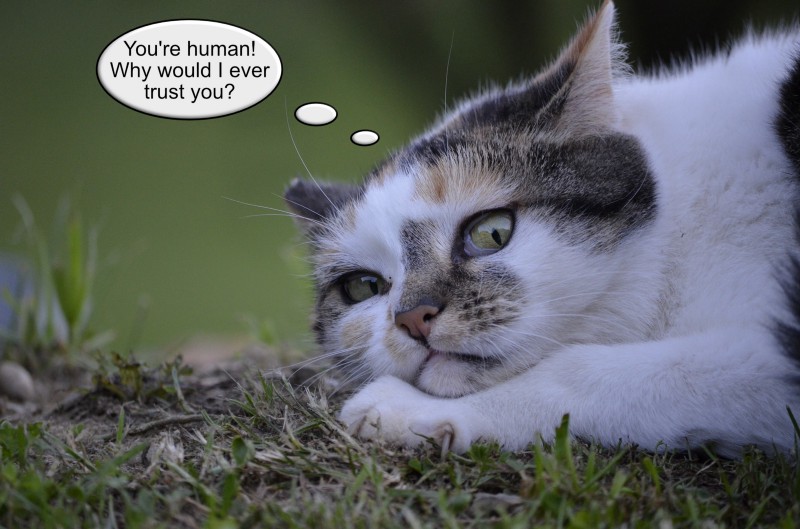People Can't Be Trusted. That's Why the Blockchain Will Change the World
True story. A small company in the UK was just scraping along. No matter what it did it, month after month, it either made a loss or just turned in a small profit. So eventually the board decided to hire a new CEO, a dynamic individual who had a shining reputation in sales management and seemed capable of motivating staff. And that’s what he did — focussing most on the sales force, but moving through every department convincing everyone they could be more productive.
His first-quarter figures were good — not as good as he had hoped, but good anyway. He figured the staff deserved a reward, so he decided the company should buy every one of them a bottle of champagne. He asked his PA to do the honors, so she ordered them and had them delivered to each department head. She was surprised when, one after another, the department heads sent her several bottles back, saying she had ordered too many. She had used the payroll system to determine how many staff were in each department.
That was how she discovered the company had phantom employees. The head of HR had been subverting the payroll system. When staff left the company, he never removed them from the payroll. He just diverted their monthly pay to an account he had set up, which was awash with ill-gotten gains.
People can't be trusted.
According to the FBI, around 75 percent of employees steal from their employer. And, by the way, that may be an underestimate. Research by psychologists David DeSteno, Claremont Mckenna, and Piercarlo Valdesolo concluded that 90 percent of people (most of whom identify as honest) will act dishonestly if they believe they won’t get caught. They will also rationalize their behavior even though they would condemn such behavior in others.
What a sorry lot we are. When it comes to people, in the majority of situations trust is a matter of circumstance. If you live in a small village where everyone knows everyone, being trustworthy is probably a necessity whether you are so inclined or not — in big cities, not so much.
Human trust does not scale well
Trust is an economic issue and a factor in many businesses. When you buy a car, you cannot know if it will match the glowing story told by the showroom sales guy. You trust that such narratives are not too wide of the truth. If the showroom acquires a bad reputation, trust vanishes.
In the financial sector trust is a much bigger deal. You trust a bank with your money; you trust a broker to buy you stocks; you trust the insurance company to pay your claim. The modern economy, and the financial sector that drives it, owes its existence to the pioneers of the seventeenth century, who found ways to embed trust into financial markets. They did it by limiting participants and expelling anyone who broke their word from the market.
Your word was your bond. It was similar to the village situation, where trust becomes a necessity. It works but it does not scale well.
That’s why brands exist — to create trust among the masses. The brand is the reputation, and it takes considerable negative publicity to damage a well-established brand. Consider the Wells Fargo scandal and ask yourself how much damage it is doing. Sure resignations and hefty fines stomp on the stock value, but how many Wells Fargo customers have jumped ship?
Blockchain, the technology of trust.
Human beings steal, tell lies, finagle and cheat. Blockchains don’t. It doesn’t matter whether it’s small businesses, large businesses, manufacturers, retailers, banks, governments or the Federal Reserve, organizations run by human beings cannot be trusted 100 percent. You can easily discover thousands of examples of egregious behavior.
In contrast, blockchains can be trusted.
A well-designed blockchain implements a system of trust that is inextricably bound to the blockchain and is inviolable. You do not have to trust the business owners or the miners, you only have to trust the technology — and the technology is (or should be) transparent, open to you or anyone else to examine.
The blockchain is the trust.
Algebraix and the design of trust.
It may help to understand the difference between a typical commercial operation and a blockchain-based business if I explain some of the design considerations Algebraix (the company I work for) has had to navigate through in designing its ALX platform. Algebraix is building a platform where users can be paid to view sponsored content (including advertising as well as music, video samples, etc.)
A good deal of the design work is no different to any other mobile-based software development. Where it differs is in consideration of the user’s data ownership and privacy. After considerable debate, the design principles we eventually chose were these:
-All user data will be encrypted using a private key
-All data will reside on a user device
-Users will have individual permission control over the use of every item of data they choose to store
-Algebraix will never see user data in the clear, except when aggregated and fully anonymized
-Advertisers will only ever access anonymized data for targeting purposes
-The ALX blockchain and various associated data stores will record all activity so that every action or transaction can be audited
-All code will be audited by a third party
-What can be open source will be open source.
The point is this: Trust isn’t something that the operators need to provide if it is embedded in the systems they run.
Fueled by the ALX token, ALX by Algebraix is the leading media platform empowering individuals to control their data. Participate now! in the public token sale for accredited investors or Join the beta program.
Follow all of Algebraix CSO Robin Bloor's blogs on Medium
